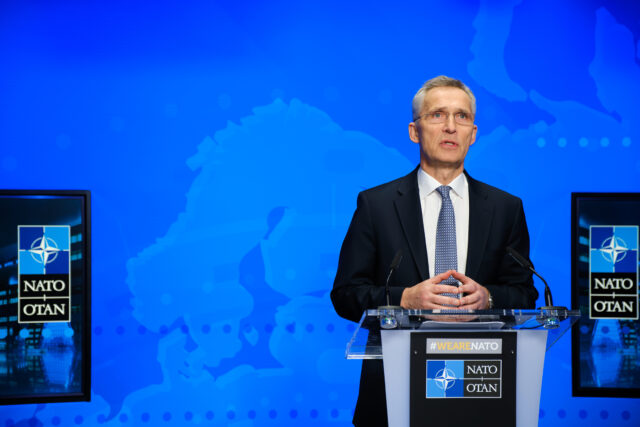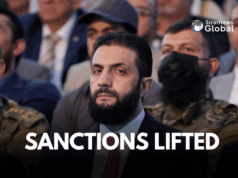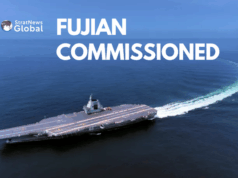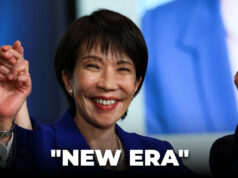Who nominated NATO Secretary General Jens Stoltenberg for the Nobel Peace Prize?
Can the head of a military alliance qualify for the Nobel Peace Prize? The rules governing the award of such prizes don’t specifically say no. Given that, Jens Stoltenberg, Norwegian head of NATO who’s been nominated for the prize by Norwegian MP Christian Tübring-Gedde, has perhaps as good a chance as anybody else. But it would be unusual for the head of a military alliance in the thick of pursuing a proxy war in the Ukraine, to be feted for his contribution to peace. Gedde claims that the NATO head knows the importance of countering Russian aggression against all countries that “base their governance on values such as democracy and liberal freedoms.” Gedde’s earlier pick for the same prize in 2020 was Donald Trump, “for a peace agreement between the United Arab Emirates and Israel which opens up the door for possible peace in the Middle East.” You all know what happened to that nomination. Now read on.
How has Stoltenberg’s nomination been received?
Television channel RT (Russia Today) which is funded by the Russian government attacked Gedde quoting Western media sources who had dubbed him “Norway’s top anti-immigration crank.” Chinese media went further. An editorial in China Daily said it was ironic that the “warmongering head of the world’s largest military alliance is being hailed as an advocate for world peace.” The editorial also added that since the Nobel Peace Prize had become a “politicised tool of the West” was there any reason for it to exist any longer?
Is Stoltenberg the only figure that has been a talking point this year?
Stoltenberg is not the only standout figure that will be in contention for the Nobel this year. Pakistani legislators recently nominated Turkey’s President Erdoğan for the Nobel Peace Prize for his “efforts to resolve the Ukrainian crisis.” “Russia-Ukraine war had quickly turned into a nuclear flashpoint that could have ended in catastrophe for the whole world. Due to his (Erdogan) untiring efforts, timely and effective interventions with both sides, he singlehandedly averted a global disaster,” Muhammad Sadiq Sanjrani, chairman of Pakistan’s Senate, wrote in a letter to the Norwegian Nobel Committee.
Has President Putin ever been nominated for the Prize?
President Putin too was nominated in 2020 by Russian writer Sergey Komkov. However, the reason for the Prize was not made public and the Kremlin itself was not too enthusiastic about his chances – coming as it did during the poisoning of Alexei Navalny. Kremlin spokesperson Dmitry Peskov said the Putin administration was not behind the nomination and told reporters “If this decision is made [to award the prize] — great, if not, it’s no problem as well.”
How is the Nobel Peace Prize decided?
The Nobel Peace Prize was laid out in the will of Alfred Nobel who stated that the Prize should be awarded according to those who have “conferred the greatest benefit to humankind.” Under the criteria, members of national assemblies, international courts, university heads and persons who have been awarded the Nobel Peace Prize before can nominate a person for the Prize. The deadline for nominations is January 31, after which the five members of the Nobel Committee can supplement the list with their own proposals. Between February and March there is a short list of the nominations and from March to August permanent advisors give their recommendations and by October that year the Nobel Peace Prize Laureates are chosen by majority vote and in December they receive the award in an award ceremony.
What are the problems?
The major criticism with the Nobel Peace Prize process is its opacity regarding the selection process. There is no disclosure on the number of nominations received, the criteria for selection and who specifically are the advisors to the Nobel Committee. The other main criticism is that there are no grounds for appeal. As a result, the committee has come in for heavy criticism as to some of the candidates who have received the award. For instance, Ethiopia’s Prime Minister Abiy Ahmed won the prize in 2019 for ending the 20-year conflict between Eritrea and Ethiopia by establishing a peace agreement. However, a conflict started in northern Ethiopia in November 2020, and Abiy has been criticised for human rights violations and war crimes committed by his forces in the Tigray region.
Another figure that caused controversy was former US Secretary of State Henry Kissinger who received the Nobel Peace Prize in 1973 for his negotiations to end the Vietnam War. But Kissinger was also accused of several war crimes during the Cold War, including bombings in Cambodia in 1969 and 1970. In fact, Vietnamese revolutionary, general and politician Le Duc Tho who was awarded along with Kissinger declined the Prize (the only person ever to do so till date) stating that his “fellow Laureate” had violated the armistice.
Traveller, bibliophile and wordsmith with a yen for international relations. A journalist and budding author of short fiction, life is a daily struggle to uncover the latest breaking story while attempting to be Hemingway in the self-same time. Focussed especially on Europe and West Asia, discussing Brexit, the Iran crisis and all matters related is a passion that endures to this day. Believes firmly that life without the written word is a life best not lived. That’s me, Ashwin Ahmad.





